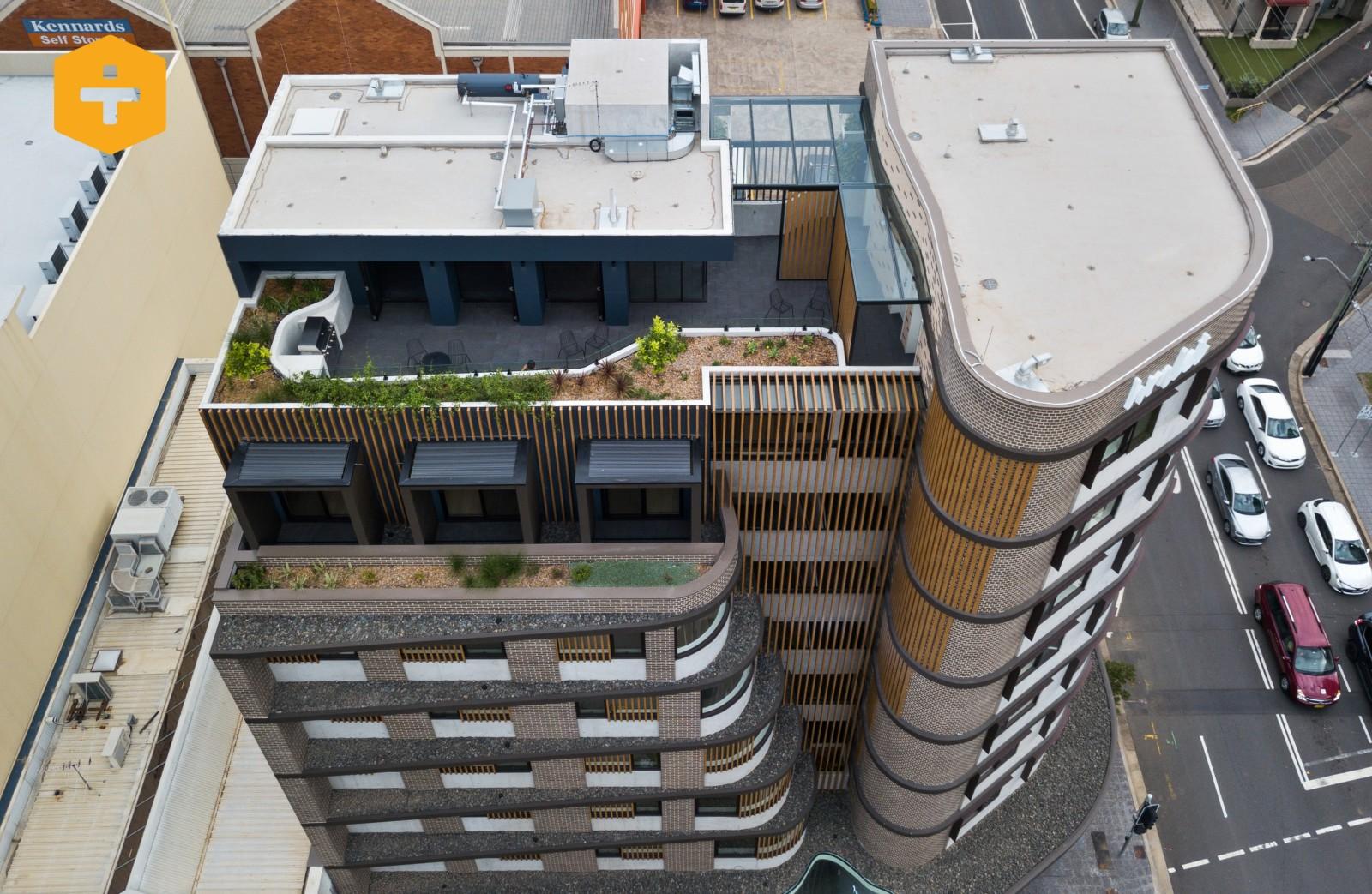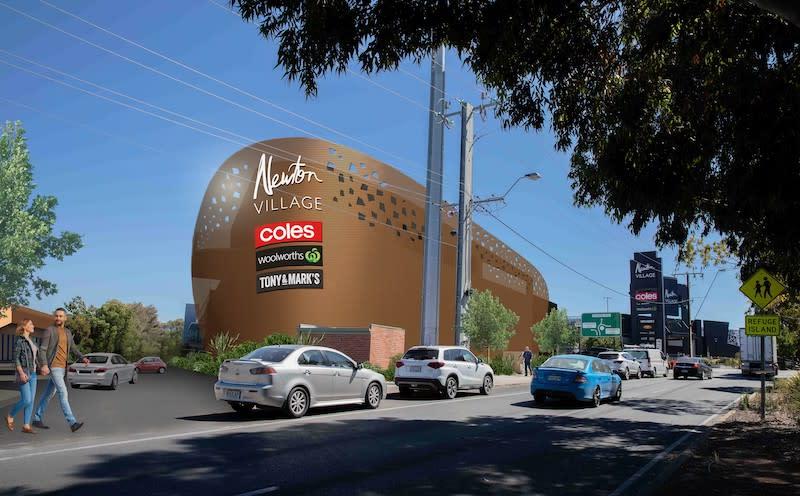

Charbel Hazzouri and Anthony El-Hazouri have never shied away from hard work.
It goes with the territory when you grow up in western Sydney.
A little more than 15 years after helping out a friend’s uncle to build a home while working jobs to pay their way through university, the two cousins are making their mark with one of Australia’s fastest-growing property portfolios.
The duo were still barely halfway through their property economics studies at the University of Technology Sydney when they established Revelop.
Across the retail, commercial, childcare and residential sectors in three states, the company’s portfolio now comprises more than 80 properties with 500,000sq m of lettable area and 1800-plus tenants under management as well as a $1 billion development pipeline—incluing no less than five town centres.
Not bad for two blokes still in their early 30s.
As the sons of two Lebanese brothers—one a structural engineer and the other a builder—who migrated and settled in Sydney’s west in the 1970s, a career path in the property industry certainly beckoned for Revelop’s founders.
But Hazzouri is quick to point out: “Nothing was handed to us … it was all hard work, thankfully. I had a dollar in my pocket when we started this company and everything we’ve learned and earned has been with hard work.”
Although retail assets now make up a large chunk of the company’s portfolio, that same western Sydney background has played to their advantage in arguably one of the property industry’s most misunderstood asset classes—co-living, a new generation of affordable housing often regarded as upscale boarding houses.
“I think that’s made us very understanding of a lot of situations … and housing affordability is something that is very close to home to us,” Hazzouri says.
“With where affordability is going, it’s becoming the more attractive accommodation for a lot more people. The cost of living is going through the roof, the cost of buying your own property has gone through the roof and a lot of people have no choice but to look at alternative accommodation.”
El-Hazouri adds that co-living housing was an early stepping stone for the company in establishing its cashflow model, providing a middle ground in the transition from residential to commercial property plays.
Initially, it partnered up with Hmlet Australia but after the co-living operator’s collapse in mid-2021, Revelop took over managing a number of the properties itself.
But the company also brought a new approach that has reshaped the perception of co-living, which for some time carried the stigma of traditional boarding houses.
“The boarding house name has a lot of negative connotations because traditionally they were very poorly managed and it was a very halfway house-style approach,” El-Hazouri says.
“What boarding houses were, say in the 1980s, is no longer what we’re developing now. We’ve taken a different approach to it … and essentially it’s a bit like Honey I Shrunk The Kids. Basically, we’ve reduced the reliance on shared facilities and we’re developing miniature apartments.”
Revelop also broke the mould of the asset class with a two-storey co-living concept in early 2014.
“Each room was like a shrunk-down townhouse, where it gave people that separation between the living space downstairs and their bedroom upstairs,” El-Hazouri says.
More recently, it also has set new benchmarks with high-rise-style co-living, such as its project at Wigram Street, Harris Park.
“The intent there was to sort of lead the way and show people you can create a beautiful building that is breathable, ” El-Hazouri says.
“The apartments incorporate passive design with good cross ventilation, the lobby areas are open to the air front and back and there is an eight-storey green wall to create a vertical natural environment on a small block of land without the opportunity for deep soil planting.
“Everyone tells us it’s the nicest looking building in the area and it’s a key example of how we’re leading the charge in creating a different conversation around what this new generation of boarding house development looks like … and that they don’t have to be thought of in a way they once were.”
Hazzouri agrees and says it is “just about being creative with the space that you have”.
“People want to feel like they’re living in a nice space. Because they’re going to be in a 20 to 25 square metre room it doesn’t have to feel like they’re in a box so we try to think about the accommodation as a whole.
“If you plan it right from the get-go, then the ultimate finished product is going to be a lot more attractive than everything else that’s out there on the market. And that’s where design comes through and opportunity in planning controls can give you a bit more space so that residents feel like they are in an actual apartment even though it’s a mini apartment.”
Meanwhile, Revelop is continuing to expand its portfolio in line with the company’s cash flow model.
“Predominantly 99 per cent of what we do is all about cash flow and build-to-hold whether it’s residential, commercial … whatever the space, that model applies,” El-Hazouri says.
Since the acquisition of its first sub-regional shopping centre—Renmark Square in South Australia for $25 million in 2017—the focus has shifted with a string of purchases of well-located retail assets.
Two of them were in Adelaide—Newton Village for $35 million and the City Cross Shopping Centre in Rundle Mall for $60 million—both from local property tycoon Con Makris.
Last year, the company picked up the Tramsheds Sydney food and retail complex in inner-city Forest Lodge from Mirvac for $52 million.
 However, Revelop is also looking at expanding its horizons beyond the existing asset classes that make up its portfolio.
However, Revelop is also looking at expanding its horizons beyond the existing asset classes that make up its portfolio.
“I think the big one will be aged care which we haven’t gotten into but we will have an appetite for as we understand it a bit better,” El-Hazouri says. “But definitely expanding the current markets we’re in is our main focus and down the track aged care as a future use.”
And it seems Revelop’s co-living housing play is also far from over.
“A lot of our retail sites have the opportunity for great co-living accommodation to be developed on them,” Hazzouri says. “[Forestway Shopping Centre in] Frenchs Forest is a great example.
“You’re opposite the major Northern Beaches hospital. You’re in a very affluent area where the cost of accommodation is expensive.
“So if the opportunity was to arise to want to develop a co-living product, you know the uptake would be very positive because your closest comparable would be a one-bedroom apartment starting at $700 a week whereas you can offer a co-living product at $400 a week and it might not be as large, but it’s going to give you nearly the same amenity.
“That’s the beauty with our shopping centres and why we don’t necessarily like to develop above them.
“We tend to focus on improving the centre as a whole and that allows us to have that upside down the track if we want to develop co-living or apartments or other product.
 “Our pipeline at the moment is purely developing the cash flow model and focusing on keeping these assets as freehold as possible.
“Our pipeline at the moment is purely developing the cash flow model and focusing on keeping these assets as freehold as possible.
“But the other benefit of a co-living product is you can potentially add that on top and keep it within one title and not be limited with having to strata it off or complicating the title system on the property.”
Hazzouri and El-Hazouri know there is still a lot of hard work ahead but indeed that certainly doesn’t faze two young blokes from western Sydney.
“Well, we were brought up very driven and hungry to make it and, thankfully, that hard work is paying off, ” Hazourri says.
“We’re very proud of what we’ve achieved so far and very thankful for the west and the opportunities it has given us. It’s managed to get us where we are today.”
Phil Bartsch
The Urban Developer
04/04/2023



